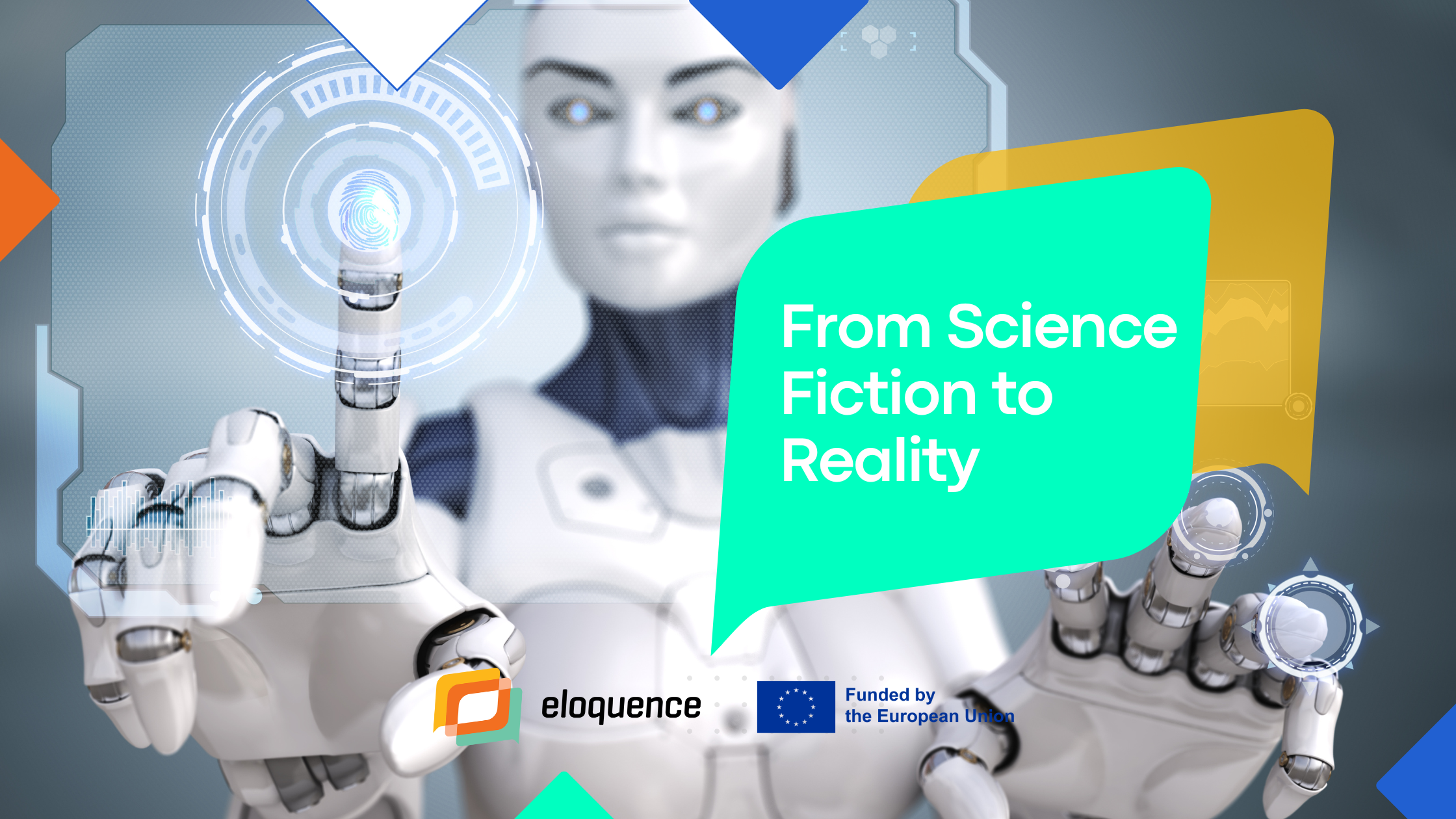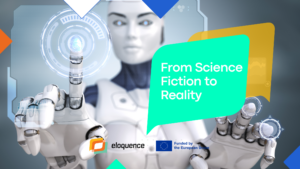Over the years, conversational agents have moved from the world of sci-fi to reality with plenty of tangible applications. From HAL 9000 in 2001: A Space Odyssey to applications such as the famous electronic personal assistants including Apple’s Siri and Microsoft’s Cortana, these technologies are gradually becoming a very rooted aspect of human lives. This blog explores how the ELOQUENCE project enhances the conversational agents’ scope through the prioritization of unbiased and trustworthy dialogue, within high-risk settings.
From Sci-Fiction to High-Function
The concept of the so-called speaking machine is traceable as far as ancient myths; for instance, one of the Greek myths is of the speaking bronze man Talos -the guardian of Crete. However, this clearly shows the human fascination with intelligent machines.
What we today call conversational agents were once science fiction and impossible ideas, but nowadays, AI avatars can mimic real facial expressions, offer a variety of animated formats, and can even be integrated with text-to-speech features. Some of today’s chatbots can be traced to the first AI program, ELIZA, which was developed at MIT from 1964 to 1967. These early systems are best described as relatively small-scale, but they provided some sense of what conversational agents could become.
The ELOQUENCE Project: A Leap Forward
When it comes to safety-relevant applications or conversations that contain sensitive information about the user, ELOQUENCE will develop a conversational agent which is not only safe and secure but can also exchange accurate and correct information with the end-users rather than the frequently used open-ended questions that are highly popular in the conversational, Q&A systems.
Key Areas of Focus:
- Context Awareness: Related to improving contextual knowledge retention by the AI agents when simultaneously operating in extensive conversations.
- Handling Uncertainty and Risk: Building the resilience of the AI agent in the conditions of volatility to guarantee proper decision-making.
- Model Interpretability: Anticipate the issues that may arise while interacting with individuals and ensure that all the decision-making processes are explained in the simplest terms when connecting conversational agents to people.
- Model Explainability: Assisting in illustrating the decision-making process of AI models, which is vital when pressed on points of urgency.
The Future of Conversational AI Agents
The improvements expected to come from the ELOQUENCE project will define new areas in the development of conversational agents that are more effective and ethical in using the given skills. These agents will be highly and widely useful, as accurate information delivery is crucial to many fields given their dependability.
Future Outlook:
- Enhanced Personalization: Future agents will be more intelligent in their interactions while guaranteeing that the privacy of the users is well protected.
- Seamless Integration: There will be an enhanced deployment of conversational agents with assistance at multiple levels to ensure high reliability.
- Ethical AI: Another trend will be further work on the ethical AI system that complies with the principles of fairness and transparency.
These conversational agents are seen as assistants in important moments of human lives, which are incorporated into existence with the highest level of reliability.
It becomes obvious that the topic of conversational agents, starting from sci-fi and ending as a reality, proves the extraordinary advancement in the world of AI. The ELOQUENCE project is in the driver’s seat of development and attests to providing a framework for achieving non-biased, reliable conversation in safety-relevant domains. These technologies will only improve over time and in the future will improve people’s lives and guarantee an ethical interaction with AI.
Whether you are an expert in AI or a programmer, a developer involved in the creation of the next technological shifts in the sphere of conversational technologies, or a mere spectator constantly following a world of creation in chatbots and conversational agents, follow the progress of the ELOQUENCE project and be the first who will test one of the four pilots!


